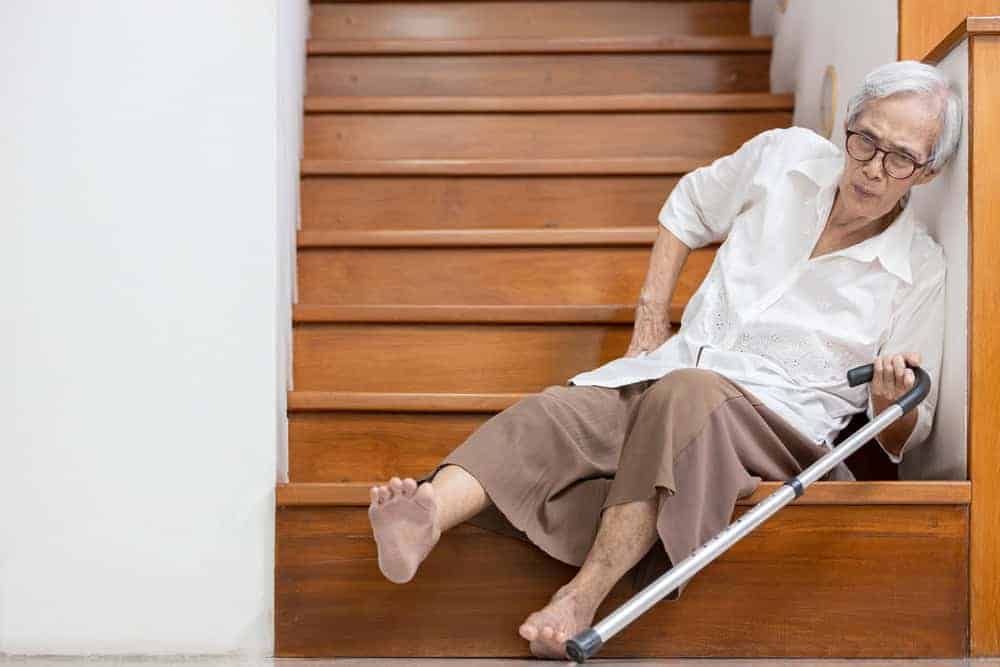Dementia, like some other memory loss problems, is a progressive condition. This means that living with someone who has dementia can be challenging and emotionally taxing, but it also involves moments of connection and compassion.
Depending on how far progressed your loved one’s condition is, they may often experience memory loss, confusion, and difficulty with daily tasks like dressing, eating, and communicating.
As a caregiver or family member, you must constantly adapt to their changing abilities and provide assistance as needed.
Their memory loss can cause mood swings, agitation, and frustration for both your loved one and you as their caregiver. Patience, empathy, and understanding are crucial in managing these emotional fluctuations.
Conversations may become disjointed or repetitive as dementia progresses. Finding effective ways to communicate, such as using simple language, visual cues, and maintaining a calm tone, can help foster better understanding and reduce frustration.

Often, individuals with dementia may begin to wander, forget to turn off appliances, or engage in other unsafe behaviors. You may need to ensure their environment is safe by installing locks, and alarms, and removing hazards before accidents happen.
As dementia advances, your beloved may need increasing levels of assistance with daily activities. Balancing their desire for independence with their safety may become a delicate task. Despite the challenges, you may want to focus your attention on the moments of joy, humor, and connection. Engaging in activities that your loved one enjoys, reminiscing about past experiences, and sharing moments of laughter can strengthen the bond between caregiver and loved one.
Providing care for someone with dementia can be physically and emotionally draining. You may experience stress, exhaustion, and feelings of isolation. Seeking support from family, friends, and support groups is crucial for maintaining your well-being.
And with the progress of memory loss, professional assistance from doctors, nurses, and social workers will become increasingly important. Specialists can offer professional medical care, guidance on how to manage symptoms, and support for both the person with dementia and their caregivers.
What A Memory Care Facility Can Offer
A memory care facility is a specialized type of residential care center designed to meet the unique needs of individuals with dementia, Alzheimer’s disease, and other types of memory loss.
Facilities, such as Amy’s Eden Senior Care, provide a safe and structured environment with specially trained staff to support your beloved’s cognitive functions and overall well-being. Some of the key features offered at memory care facilities include:
- Specialized Staff Members
- All employees have received specialized training in dementia care, including understanding the progression of memory-related diseases, managing challenging behaviors, and effective communication strategies with seniors who have memory impairments.
- In addition to professional training, caregivers working at Amy’s Eden Senior Care facilities are trained to be patient, empathetic, and supportive, recognizing the emotional and psychological needs of the elderly as well as their physical requirements.
- Secured Environment
- The memory care facilities are equipped with safety features such as secure entrances and exits, alarmed doors, and monitored areas to prevent residents from wandering off and getting lost at any time of the day.
- Common areas and living spaces are designed to be easy to navigate, with minimum hazardous furniture or other features. They have clear signage and visual cues to help your loved one find their way and reduce confusion and falls.

- Personalized Care Plans
- Upon admission, your beloved will be evaluated to determine their specific needs and abilities, which will facilitate the creation of a tailored care plan.
- This care plan, however, is not set in stone. It is regularly reviewed and adjusted as seniors’ condition changes, ensuring they receive appropriate support and care at all times.
- Therapeutic Activities
- Your loved one will be engaged in daily activities designed to stimulate their cognitive functions, such as memory games, puzzles, and other brain exercises that can help slow mental decline.
- Additionally, memory care programs include physical exercises like walking, stretching, and light aerobics to maintain mobility and overall health.
- Group activities, such as music therapy, art classes, and social gatherings, encourage interaction among seniors in the facility, reducing feelings of isolation and promoting a sense of community.
- Support Services
- Regular health check-ups and monitoring by healthcare professionals ensure that your loved one’s medical needs are met, including the management of any chronic conditions.
- Memory care facility staff handle the administration and monitoring of medications, ensuring that seniors take the correct dosages at the right times.
- At the facility, your beloved will have access to specialists such as geriatricians, neurologists, and therapists who can provide advanced care and treatment for any specific medical issues.
- Comfortable Living Spaces
- The living areas at Amy’s Eden Senior Care facilities are designed to be cozy and familiar, often decorated with personal items and memorabilia to make your loved one feel more at home.
- The environment is structured to be peaceful and reduce stress, with quiet spaces, calming colors, and minimal clutter.
- Seniors have the option of private or shared homes, depending on their preferences and needs, each designed to offer comfort and a sense of security.
Who Is Memory Care Suitable For?
Memory care facilities can be beneficial for people who suffer from serious memory loss conditions, like dementia or Alzheimer’s disease.
- People with advanced stages of dementia or Alzheimers. At the more advanced stages of these conditions, your beloved’s memory, thinking, and ability to do everyday tasks are often severely impaired. Therefore, they may need special care to help them stay safe and healthy, as their condition requires a lot of support and intensive supervision.
- People who are not safe living by themselves. Memory care is for people who might wander off or get lost. These facilities have secure areas and gates to keep residents safe and prevent them from leaving the premises without supervision.
- People who need assistance with activities of daily living. People in memory care receive help with daily tasks like eating, bathing, dressing, and taking medications.
- Those whose health needs monitoring. Memory care provides regular health check-ups and medical care. This can be of help if your loved one has other health issues that have to be monitored besides memory problems.
- People who live in remote areas and have difficulties socializing. Memory care facilities offer not only activities designed to keep the mind active and improve quality of life but also opportunities to participate in group sessions such as social gatherings at which your beloved can communicate with others.

How Memory Care Facilities Compare To Other Senior Care Options
Memory care facilities are designed to create a safe and comfortable environment for people with memory problems, helping them live as independently as possible while getting the care and support they need.
Some senior care facilities offer special memory care services, but others do not. Here you can see some of the differences in assistance provided by them.
Assisted Living Facilities
- They offer help with daily activities like bathing, dressing, and medication management.
- Provide a range of social and recreational activities.
- Generally, they do NOT provide the specialized programs needed for memory care.
- May NOT offer secure environments to prevent wandering.
- The staff is NOT specially trained in dementia care techniques.
Nursing Homes (Skilled Nursing Facilities)
- Provide round-the-clock medical care and supervision for seniors with serious health conditions or disabilities.
- They offer a more clinical environment compared to memory care.
- Nursing homes may have dementia units, but NOT all are equipped for specialized memory care.
- They do NOT emphasize creating a supportive and stimulating environment to manage memory loss-related symptoms and improve quality of life and aren’t explicitly focused on residents with dementia or Alzheimer’s.
- Allows seniors to remain in their own homes while receiving care.
- Care can be tailored to the individual’s needs, including memory care.
- May lack the structured environment and specialized programs available in memory care facilities.
- In-home care can NOT ensure a secure and safe environment with continuous supervision.
- It can NOT offer group activities and socialization.
Adult Day Care Centers
- Offer daytime care, activities, and socialization for seniors.
- They provide a break for family caregivers.
- Do NOT offer 24/7 residential care with specialized programs for memory issues.
- Their staff is NOT trained to handle the specific challenges associated with dementia.
Continuing Care Retirement Communities (CCRCs)
- CCRCs provide a range of care levels, from independent living to skilled nursing care, all within one community.
- They allow seniors to move between different levels of care as their needs change.
- Some may have dedicated memory care units, but not all do.
- CCRCs do NOT offer a secure environment and tailored programs.
Hospice Care
- Provides end-of-life care for individuals with terminal illnesses, including those with advanced dementia.
- Focuses on comfort, pain management, and emotional support during the final stages of life.
- It can be provided at home, in a hospice facility, or within other care settings, including memory care facilities.
- Does NOT necessarily focus on long-term care and improving the quality of life for individuals with dementia.
Tips For Finding The Best Memory Care Facility
Finding the best memory care facility for a loved one can be a challenging task. To help you make an informed decision, consider the following.
Assess Your Loved One’s Needs
Understand the specific needs of your loved one, such as the stage of their dementia, their medical requirements, and their personal preferences. This will help you find a facility that can provide the appropriate level of care.
Research and Visit Multiple Facilities
Research different memory care facilities in your area. Visit each facility in person to get a sense of the environment, cleanliness, and overall atmosphere. Take note of how the staff interacts with residents and how residents seem to feel about their surroundings.
Check Staff Qualifications
Ensure that the facility’s staff members are trained and experienced in caring for individuals with dementia. Ask about staff-to-resident ratios, staff turnover rates, and ongoing training programs.

Evaluate Safety and Security
Safety features such as secure entrances and exits, alarm systems, and non-slip flooring are crucial requirements for a memory care facility. While visiting, check for emergency response plans and protocols for handling wandering or aggressive behavior.
Review Activities and Programs
Look for facilities that offer a variety of structured activities and programs designed to stimulate cognitive function and provide social interaction. Activities should be tailored to the abilities and interests of the residents.
Consider the Facility’s Location
Choose a facility that is conveniently located for family and friends to visit. Proximity to a hospital or medical center is also important in case of emergencies.
Understand the Costs
Memory care can be expensive, so it’s paramount to understand the costs involved. Ask the representative for a detailed breakdown of fees and what services are included. Inquire about payment options, insurance coverage, and any financial assistance programs that may be available.
Read Reviews and Ask for References
Online reviews from other families who have used the facility’s services can be a helpful insight. Ask the facility for references and reach out to them to learn about their experiences.
Trust Your Instincts
Pay attention to your gut feelings during your visits and interactions with the facility’s staff. If something doesn’t feel right, it may be worth considering other options.
Involve Your Loved One
If possible, try to involve your loved one in the decision-making process. Their comfort and happiness are central, and they should feel comfortable and safe in the environment you choose for them.
Standards and Regulations for Memory Care Facilities
Memory care facilities are regulated to ensure they meet specific standards aimed at safeguarding the health, safety, and well-being of residents with memory problems.
Knowing what these regulations entail can help you decide if a facility is the most suitable one for your beloved. Here are some common standards and regulations memory care facilities need to follow:
- Licensing and Certification – memory care facilities must be licensed and certified by state regulatory agencies. This process ensures that the facility meets minimum standards for safety, staffing, and care provision.
- Staffing Requirements – regulations mandate specific staff-to-resident ratios to ensure adequate supervision and care. It is a requirement that staff members are trained in dementia care, including understanding behaviors associated with memory disorders and how to manage them effectively.
- Physical Environment – facilities must provide a safe and secure environment, including measures to prevent wandering and ensure resident safety. This includes secured doors and exits, alarms, and appropriate lighting.
- Care Plans – each resident must have an individualized care plan tailored to their specific needs, preferences, and medical conditions. This plan should be regularly updated based on the resident’s changing health status and needs.
- Medication Management – regulations govern the administration, storage, and monitoring of medications to ensure residents receive them safely and as prescribed. This includes procedures for documenting medication administration and handling medication errors.
- Health and Wellness Services – memory care facilities are obliged to provide access to healthcare services, including medical care, therapy services (physical, occupational, speech), and mental health services. Regular assessments of residents’ health and well-being are typically required.
- Nutrition and Dietary Services – facilities must offer nutritious meals and snacks that meet residents’ dietary needs and preferences. Special diets, such as those for diabetes or swallowing disorders, should be accommodated.
- Activities and Social Engagement – regulations often require facilities to provide structured activities and programs designed to stimulate cognitive function, promote social interaction, and enhance the quality of life for residents. These activities should be appropriate for individuals with memory impairments.
- Family and Resident Rights – seniors and their families have rights that must be respected, including the right to privacy, autonomy, and involvement in care decisions. Memory care facilities should have policies in place for handling complaints and grievances.
- Emergency Preparedness – emergency plans and procedures should be in place to respond to natural disasters, medical emergencies, and other unforeseen events. This includes staff training and drills to ensure readiness.
- Inspections and Monitoring – regulatory agencies conduct regular inspections and reviews to ensure facilities comply with standards and regulations. Non-compliance can result in fines, penalties, or even closure of the facility if serious violations are found.

These standards and regulations are designed to promote quality care, protect residents’ rights, and maintain a safe and supportive environment for individuals living with memory impairments in memory care facilities.
What Needs Does My Loved One With Memory Problems Have
Every individual with memory problems, such as those with Alzheimer’s disease or other forms of dementia, has specific needs that require specialized care and support. Here are some of their key needs:
Safety and Security
People with dementia often wander or may forget to take safety precautions, so they need to reside in secure facilities with alarms and locked gates. Their caregivers should be trained to supervise and redirect them as needed to ensure their safety.
Routine and Structure
Predictable daily routines help seniors with memory problems feel more comfortable and less anxious. Consistent schedules for meals, activities, and rest periods can reduce confusion and agitation.
Memory Stimulation
Activities that engage memory, such as reminiscing sessions, puzzles, and memory games, are important for cognitive stimulation. These activities can help maintain cognitive function for as long as possible.
Nutrition and Hydration
Proper nutrition and hydration are crucial for everyone’s overall health. With the advancement of memory loss, your beloved’s eating and drinking habits may change, but it is essential to ensure they are getting adequate nutrients and fluids.
Assistance with Activities of Daily Living (ADLs)
Many seniors with dementia may need help with tasks like bathing, dressing, grooming, and toileting. It is, however, essential to assist with these activities while promoting independence and dignity.
Emotional Support
Dementia may cause emotions like frustration, anxiety, or depression. Compassionate caregiving by someone trained in dementia care is crucial in providing emotional support and reassurance.
Family and Social Interaction
Maintaining connections with loved ones is vital for seniors’ emotional well-being. Family visits and social activities with family members can foster meaningful interactions.
End-of-Life Care
As dementia progresses, your loved one may require palliative or hospice care. You need to be prepared and have a plan ready to set in motion to provide comfort and support during this difficult time.
A Day At A Memory Care Facility
A typical daily routine in a memory care facility is designed to provide structure, engagement, and comfort for your loved one with cognitive impairments. Here’s an example of what such a day might look like:
Morning
- Wake-Up and Personal Care: Staff assists seniors with waking up, bathing, dressing, and grooming.
- Breakfast: Your beloved and other residents gather in the dining area for a nutritious breakfast, with staff available to assist as needed.
- Morning Exercise: Gentle exercises or stretching activities to help seniors stay physically active.
- Cognitive Activities: Seniors are engaged in puzzles, memory games, or arts and crafts to stimulate the mind and promote cognitive function.

Midday
- Lunch: A balanced meal is served in the dining area, with assistance for those who need help eating.
- Rest Period: Time for your loved one to relax, take a nap, or enjoy quiet activities like reading or listening to music.
- Social Activities: Group activities such as music therapy, pet therapy, or group discussions are scheduled to encourage social interaction and engagement.
Afternoon
- Snack Time: A healthy snack is provided to keep energy levels up.
- Outdoor Time: Weather permitting, seniors may enjoy time in a secure outdoor area, participating in light gardening, or simply enjoying the fresh air.
- Therapeutic Activities: Activities like reminiscing sessions, sensory stimulation, or guided relaxation are offered to support emotional well-being.

Evening
- Dinner: A nutritious evening meal is served, with staff assistance available.
- Evening Entertainment: Activities like movie nights, live music performances, or board games to unwind and enjoy the evening.
- Personal Care and Bedtime: Assistance with evening hygiene routines, changing into pajamas, and preparing for bed.
Throughout the Day
- Medical and Health Monitoring: Regular check-ins and medication administration by trained staff to ensure seniors’ health and well-being.
- Family Visits: Scheduled times for family and friends to visit and spend time with their loved ones.
- Support and Companionship: Staff is available around the clock to provide emotional support, companionship, and immediate assistance with any needs.
What may look like a monotonous schedule is in fact a structured routine that helps create a sense of stability and security for people with cognitive problems, reducing anxiety and promoting overall well-being.
Your Takeaway
Living with someone who has dementia is emotionally challenging due to their deteriorating memory, confusion, and difficulty with daily tasks. Patience and understanding are crucial as your loved one’s condition progresses, impacting communication and safety. Despite difficulties, moments of joy and connection are to be treasured.
Memory care facilities, like Amy’s Eden Senior Care, specialize in dementia and Alzheimer’s care. They can offer:
- Specialized staff trained in dementia care.
- Secured environments where the safety of your loved one is guaranteed.
- Personalized care plans and therapeutic activities.
- Support health services and comfortable living spaces.

When choosing a memory care facility for your beloved, ensure you have assessed their needs and taken into account their preferences for a place that would cater to their requirements for intensive supervision, assistance with daily living, and specialized medical care.
By preferring a facility like Amy’s Eden Senior Care — a place with staff who has sufficient experience, great reviews, and can offer a supportive and stimulating environment for people with memory impairments — you are choosing companionship, care, and community. Reach out to us today to learn more or schedule your visit.




